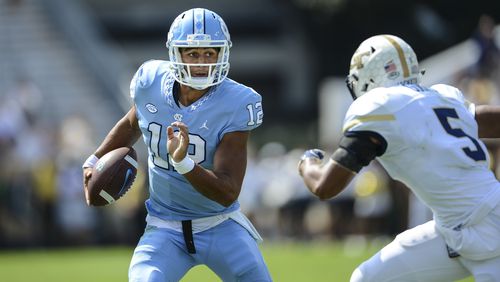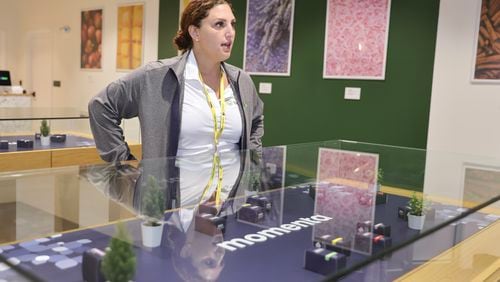On the day of Georgia Tech’s spring game in April, safety A.J. Gray was medically cleared to return after surgery to repair a torn labrum that had kept him out of spring practice, Gray’s father Allen said.
“He told me, ‘Dad, my shoulder feels good,’ and I was telling him, ‘Man, you played with that labrum tear and you played good,’” Allen Gray said Wednesday. “’You ought to be running through people now.’”
Less than a month later, A.J. Gray’s career was over because of concerns over a far more grave medical condition, a congenital heart abnormality. Tech announced Monday that Gray, along with offensive tackle Jake Stickler, had been medically disqualified from playing for the Yellow Jackets. The Gray family learned of the ruling the previous Friday.
“Under the circumstances, he’s doing good,” said Allen Gray, the principal at Washington County High, where A.J. starred.
Gray was born with an abnormal aortic valve, which is associated with the enlargement of the beginning portion of his aorta, according to a team doctor’s explanatory email to Allen Gray that he shared with the AJC. Aware of the condition, team doctors have monitored his heart, and recognized that his aorta had grown in size from last year.
Given the growth and size of his aorta, they concluded that the health risk caused by collisions and the stress of training had become excessive. While doctors could not quantify the amount of risk A.J. was taking by playing, the growth of the aorta had increased the likelihood of an acute tear or ruptured aorta, both potentially fatal conditions.
The Grays have dealt with the sadness of A.J.’s career being over, “but on the other hand, you’re appreciative of the doctors and their thorough examination of him in order to really pay attention to that,” Allen Gray said. “Because, like I tell people, I’d rather have people send me their well wishes than their condolences.”
The end arrived abruptly. Jonathan Kim, Tech’s team cardiologist and the chief of sports cardiology at Emory, called for a meeting with Allen Gray, his wife, Annie, and A.J. The Grays were surprised to see coach Paul Johnson show up for the appointment.
“It’s not good if the head coach is walking in there,” Allen Gray said. “Stevie Wonder can see that this isn’t good.”
Kim quickly explained that the medical staff was recommending medical disqualification and ongoing care with a cardiologist. Just like that, Gray, who had started for the Yellow Jackets for the past two seasons and whom Johnson proclaimed in 2016 had “the opportunity to be one of the all-time great players at Georgia Tech,” was done as a football player.
Gray and Stickler will stay on scholarship, although they won’t count against the NCAA’s 85-scholarship maximum. In the meeting, Johnson provided a way forward to A.J., offering different ways that he could continue to be around the team, including the future possibility of a graduate assistant position.
“He lifted a little bit of the burden with immediate options,” Allen Gray said.
Gray will have a series of checkups, but will not need surgery at this time. He is also on track to graduate next spring with a business degree with a concentration in information-technology management, his father said. In selecting his major, he was following his father’s advice to get an education in a field for which there is demand in the job marketplace.
“I always talk to my children and the students at Washington County High School about having options and always having a Plan B, and not throwing all your proverbial eggs into one basket, because life happens and things change,” Allen Gray said. “For me, after I literally got up off the floor, you start putting things into perspective and reevaluating and reassessing where you are and you make that turn and keep moving forward.”







